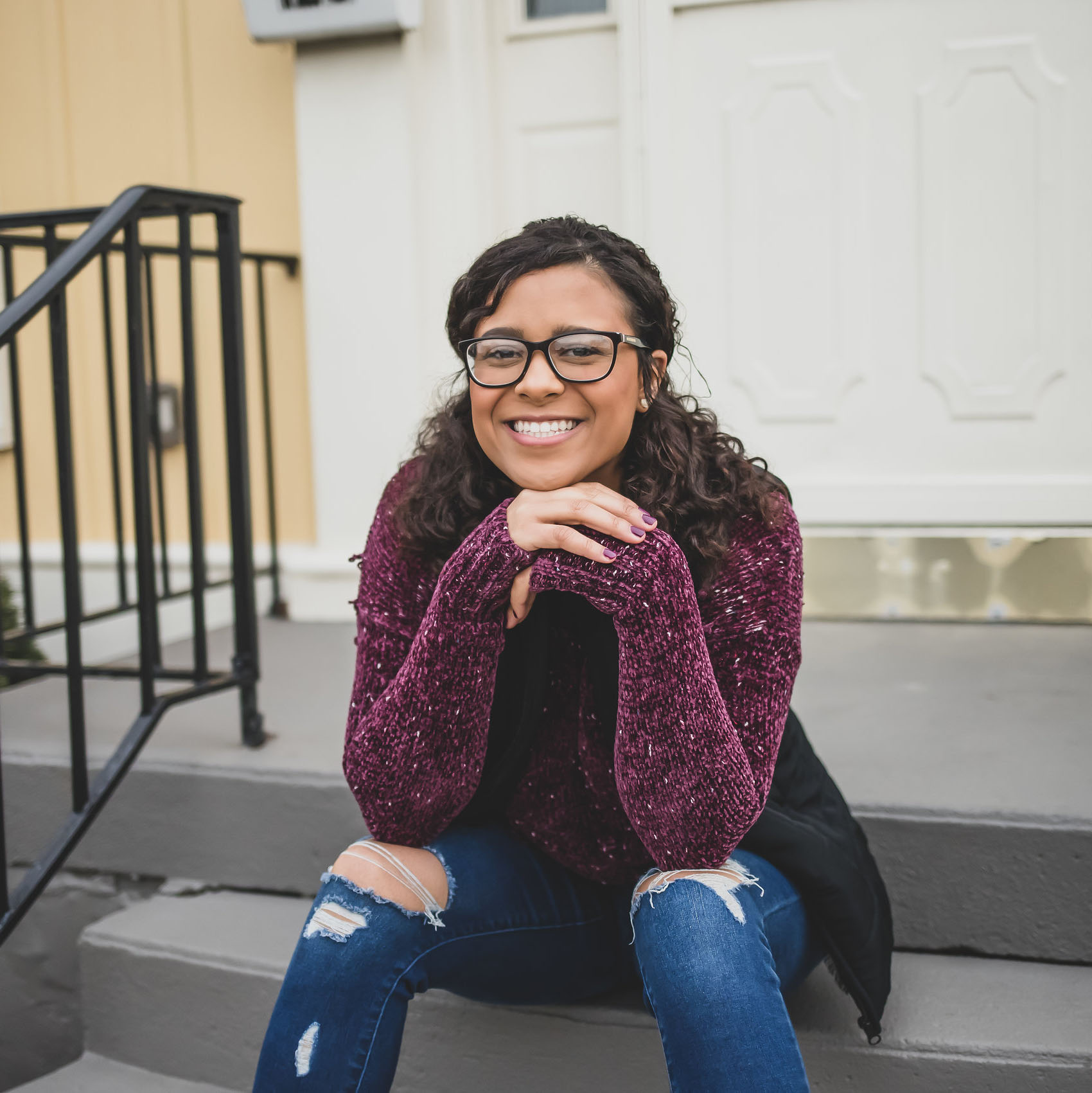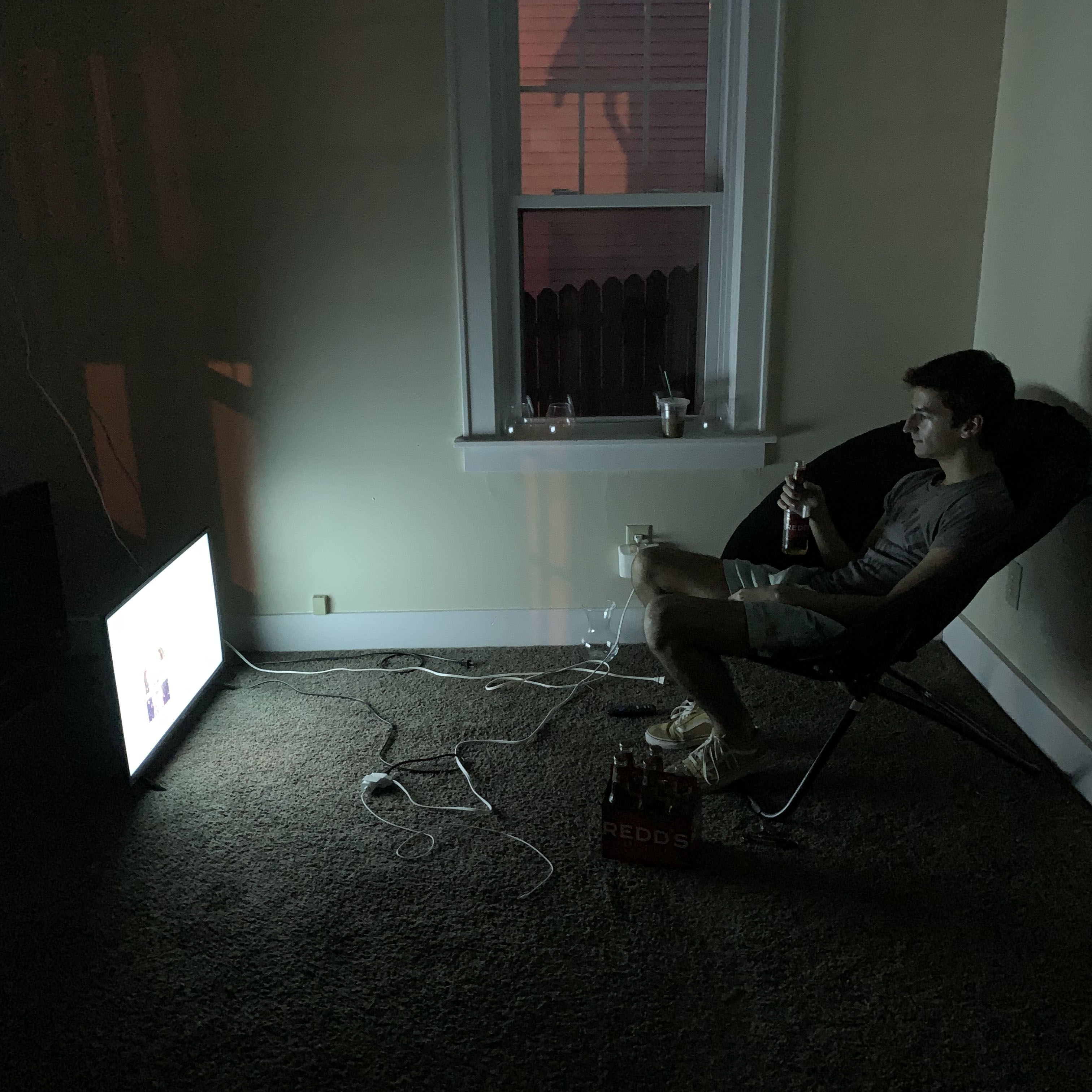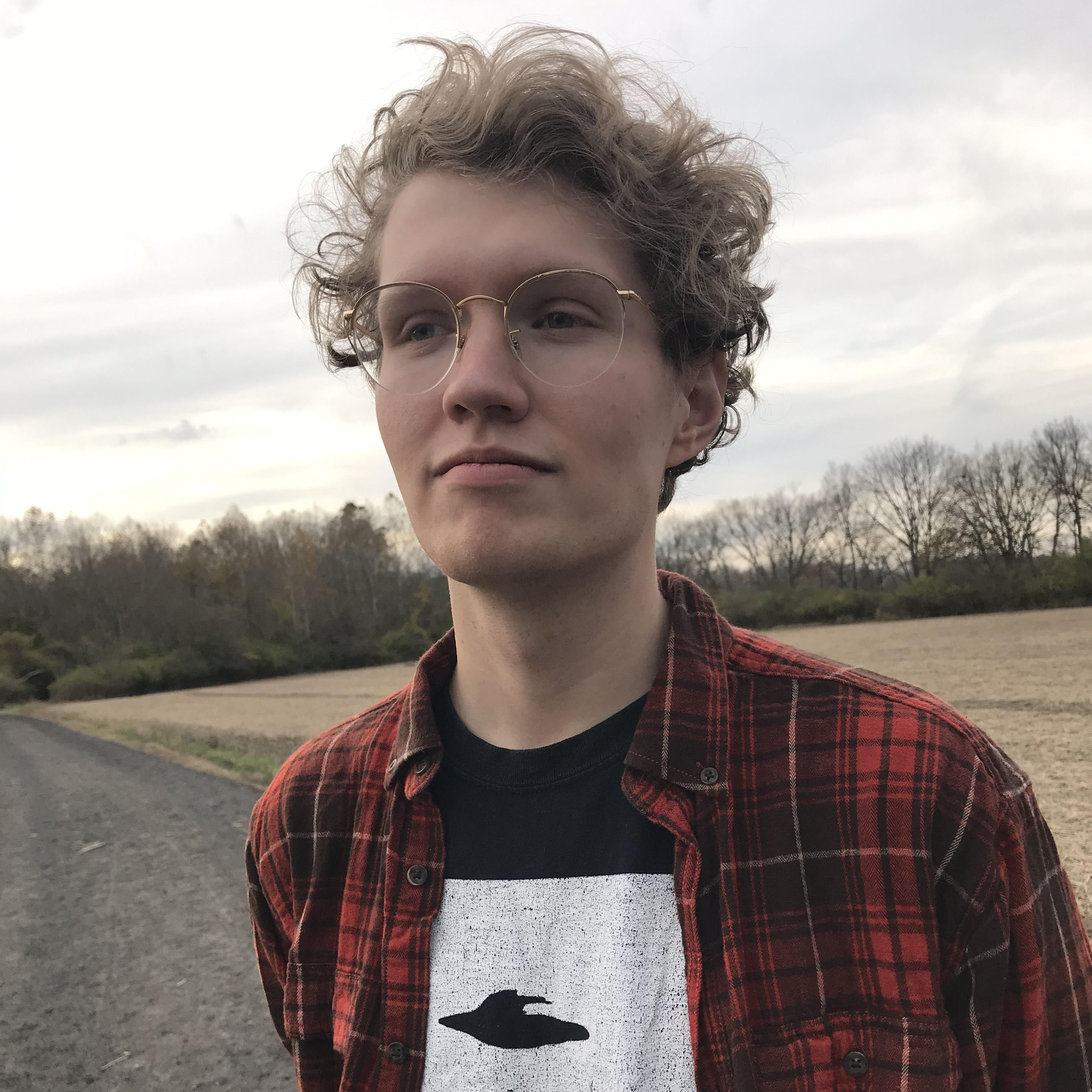HWC Writing Contest Features Reflections on the Year 2020

The year 2020 has drastically altered our lives. These times of isolation and introspection, though difficult, have also helped us all reflect on the world and our space in it.
For the Fall 2020 Howe Writing Center (HWC) writing contest, we asked Miami writers to set their voices free and tell their unique stories in flash essays addressing the events of this momentous year. We received submissions on a range of topics like tolerance, inclusion, antiracism, social inequality, and COVID-19.
We're grateful to everyone who shared their personal stories with us. Members of the Creative Writing Special Interest Group (SIG) and HWC staff collaborated in the judging process. The creative piece itself and the author's note both factored into the judging. Two co-winners were selected for first-prize and $100 gift card awards: Aiyana White and Ethan Maguire. Runner-up and winner of a $25 gift card was Gabe Porter. Lauren Racela recieved a staff choice distinction and a $25 gift card. You can read the flash essays from the contest winners below.
Co-First Prize: Aiyana White
Read Aiyana's flash essay
When you leave this house take your durag OFF, take OUT your braids, and do not wear a fro; don’t put any oils in your hair and don’t use cocoa butter on your skin. Don’t walk out in a hoodie cuz it makes them scared when they can’t see the whip-scarred skin on your back to remind them that they're in charge. Hands up. Make yourself small so they feel bigger, respect all white folk even if they don’t respect you. Hands up. Talk white; don’t say “mines”, or “waddup cuz”, instead say “yes sir”, “no sir”, “yes ma'am”, and “no ma'am”. Hands up. Never raise your voice, never argue, and don’t be too loud. Hands up. Don’t jaywalk, make sure your pants are pulled up, and wear fitted clothes— don’t you dare look like a “thug”. Hands up. Drink LaCroix and do not eat chicken in front of them cuz you know what they say. Every. Damn. Time. Hands up. Listen to pop music on the radio, cuz if they catch you playing Tupac and speaking truth you know what they’ll do. Hands up. When he pulls you over make sure your hands are always in sight. Hands up. Don’t ask questions. Hands up. Silence yourself so they don’t silence you. Get out the car, get on your knees, and don’t say a damn word. Hands up. I don’t care if you didn’t do anything wrong, keep your hands up. Please, baby, remember Hands up. Hands up. Hands up don’t shoot.
I’m afraid to lose you.
In the Writer's Words
My brother, Cameron, is six and loves to dress up in costumes: superheroes, ninja turtles, power rangers, cops and robbers…. So when I was asked to write a small prose or poem to someone I care about a few months ago at Miami, I started to think about how Cameron could one day be outside playing in his costumes and be seen as a threat, just like young Tamir Rice. I knew I would soon have to have “the talk” with my little brother. Not “the birds and the bees”, but the talk that so many little back boys and girls have to go through at such a young age. So I wrote this. I would like to continue writing about the struggles of black families in a way that can not only be related to by other black people, but also can also be sympathized with by non-black people.

Aiyana White is a second-year Independent Studies major through the Western Program. She is a part of the Urban Cohort, where she will be working with Cincinnati youth in schools. Over this past summer, Aiyana led a BLM protest in her town and was given a special honor coin from the mayor of the city. She looks forward to continuing to speak out against injustices and fight for equality for all marginalized communities.
Co-First Prize: Ethan Maguire
Read Ethan's flash essay "These Walls"
These Walls
On Monday, a text and an appointment scheduled. Tuesday, a test. Wednesday, a positive result. I have become a toxin, a liability, a statistic. A part of a collective experience that bears no comfort in its universality. Placed at the center of a virus that has become a political issue, the subject of misinformation and disinformation and jumbled governmental responses – play-it-by-ear’s, wait-and-see’s, hope-for-the-best’s.
I have seven roommates. Once I get a positive test I have to tell them. Some of them work uptown. They have to tell everyone they’ve been in contact with. I get sick to my stomach thinking about these networks of connection, the way the virus spreads and expands upon itself. One case becomes a pandemic. How many people could I have infected before I started showing symptoms? My particles, my poisonous air. Is someone somewhere on a ventilator because of me? Someone with loved ones who suffer six feet apart? All it takes is one wayward breath. These rabbit holes are easy to fall down when you are alone, when you are cut off.
Our house is shut down. I get my own bathroom, labeled with a sign. Black sharpie on loose leaf paper. COVID BATHROOM. I’m radioactive, I’m a harbinger, I exude fear and disease and death.
I wear a mask to go downstairs. I keep my visits as infrequent as possible, dashing down every so often to use the bathroom, refill my water bottle, grab something that I can eat in my room. When I’m done I use Clorox wipes to disinfect every surface I touch with the fervor of a homophobic zealot. When my roommates see me, they cover their noses with their shirts, make their fingers into crosses to cast me out like a demon. It’s a joke, but I know there is truth to it. Comedy equals tragedy plus time. I am the tragedy. Where is the time?
Two weeks. Fourteen days of isolation. Open doors become a cardinal sin. Every squeal of a door opening is followed quickly by the click of its closing. A piece of wood, a piece of cloth. We place our faith in these small barriers between sickness and health because there is nothing else to do. For once I am thankful for my house’s thin walls. I can hear everything, the shuffling around and muffled voices of my roommates, reminders that the house is still alive, it breathes, it exists. One night my roommates watch a movie together. I hear them laughing. I slink downstairs to use the bathroom. I’m glad this could bring us all together, I say. No one hears me. I piss, wash my hands, retreat. In December I will graduate, leave this house a semester early. I wonder if my presence will be missed, my absence felt.
Some days I feel better. Some, worse. Every day my immune system works, silently and diligently, putting my pieces back together. It is a gradual recovery, like life.
In the Writer's Words:
This is an excerpt from a longer piece I wrote about having COVID. I wanted to highlight what made quarantine most difficult for me – not the illness itself, but the accompanying isolation, the lack of connection. In my house of eight, I lived alone in my bedroom. I became so familiar with the confines of the space. All of this was complicated by the fact that this is my final semester at Miami. Each day that ticks by is one of my few remaining ones in Oxford. I couldn’t help but think about impermanence, the fact that my friends will be here for five more months, that my house will still hum with the familiar energy I’ve come to associate it with even when I’m hundreds of miles away. This piece was a way for me to verbalize that anxiety.

Ethan Maguire is a senior Creative Writing/Media & Culture major. He will be graduating in December 2020. He’s seen better days.
Runner-up: Gabe Porter
Read Gabe's flash essay "Sanitize"
Sanitize
I delicately open the bottle of hand sanitizer so as to reapply another sickly sticky coat onto my fingers. A mucus forms around my hands as I do this over the course of my workday. The alcohol contained within the gel burns miniscule cuts and scrapes never seen. My fingerprints feel irrevocably changed by the overzealous accumulation of the all-cleaning syrup. I try and wipe the excess off onto my clothes. Despite this, there still exists deep under my fingernails the remnants of the viscous liquid. I stop what I am doing and stare at it. The glistening globs look like teardrops from an alien. I start to lose focus as fog fills my glasses. I move my mouth, open shut open shut, as to readjust the mask hoping to reach a miracle placement that allows for clear eyesight. I get to a place that alleviates some of the buildup before I give up and move my glasses with my tacky hands. I do this fast enough to see a customer approach me without a mask. Their face turns into a dagger pointed towards my heart. I hide the anxiety by subtly backing away, my feet barely leaving the floor. Anything to just put distance between me and the invisible particles spewed from the weapon of their face. They ask a question, I mutter a response. I don’t breathe until they have left. Long inhale long exhale. I allow myself to dissociate, just ever so slightly. I start to go back to work, breaking open boxes to stack tall the products. Before I do, however, I reach into my pocket and pull out the tiny, almost empty vile. I delicately open the bottle of hand sanitizer so as to reapply another sickly sticky coat onto my fingers.
In the Writer's Words
For this story I wanted to capture the anxiety of my workday. It is one of the most apparent ways COVID-19 has affected me. Every time I walk into work I face a fear that I might get it and then pass it onto others. This anxiety comes out through over usage of hand sanitizer. I go through a lot of it every shift, most times it might not even be needed, but it has become a sort of security blanket for me. Another factor is the fact that more and more customers are coming in without masks, leading to more anxiety and more sanitizing. This cycle has been a huge part of my life post COVID-19, so writing about it seemed to make the most sense.

Gabe Porter is a senior creative writing major and IMS minor at Miami University. He is currently involved with Inklings Arts and Letters, a student-run lit journal here at Miami, as the social media chair. He likes to poke fun at many things, but most of all himself. He is currently writing a book about a town faking a UFO landing.
Staff Choice: Lauren Racela
Read Lauren's flash essay
“Maybe it’s that if you’re white you can’t see all the whiteness around you.” —Jacqueline Woodson, “Commercial Break”
The only black girl in school can be found on the wall above the drinking fountain in the orange hallway. She’s a picture. One of those cheesy framed motivational quotes with black serif lettering at the bottom. Pictured: A little black girl, maybe 6 or 7 years old, lacing a ballet slipper with her tiny, ungraceful hands. It’s funny. This little girl wears light pink tights that mimic the skin tone of 99% of this school’s student population. But not her own. Her ballet slippers are supposed to be skin-tone, but they’re blindingly pale next to her deep, warm skin.
The bottom says “possibilities.” Some quote about believing you can achieve anything. The American Dream, some would argue. And isn’t it funny how that works? That we’re supposed to believe that anyone can grow up to be a famous ballerina, even this girl who we know will be marginalized her whole life. Because we see the color of her skin and we see the protests in the streets, and we can put two and two together to picture what her life might be like. Maybe she lives below the poverty line. Maybe she’s in foster care. But look at her with her pretty dance shoes! Would this picture have the same effect if it was a little white girl with red hair and freckles wearing those pale tights? Sometimes white people love to see black people succeed because it proves to them that their own racism can be overcome. It falsely makes white people feel as if the scales are not so tipped. As if the gap is not so wide. That’s why tokenism exists. That’s why college brochures always make sure to add a few black and brown people in the pictures. If these people who are constantly incredibly marginalized by society can succeed at our school, so can you!! There are probably other reasons too, but no one can deny that it’s a little strategic, a little patronizing. A little bit of false advertising.
When I see this picture of this little black girl and the pale pink ballet shoes, I’m reminded of the hypocrisy of this country. I’m reminded of how lonely my few students of color feel in these same hallways. Racism can be overt and easily condemnable, but it can also sometimes be so small and constant that it almost feels excusable. It affects the way we think and perceive everything around us, and no one is exempt from it. But sometimes the best we can do is feel it. Feel the discomfort of realizing that we all play into a racist system. It feels like sinking into ice water – a shock to the system. But it’s what we need in order to wake up.
In the Writer's Words
This essay describes a “motivational” image of a Black ballerina displayed in the hallways of the school where I work, where 90% of the student population is white. The quote at the top is from a poem called “Commercial Break” by Ohio native Jacqueline Woodson. Her poem critiques the lack of Black representation in advertising during her Midwest childhood in the 1970’s. My essay focuses on representation as well, but in a different way. Here, I call attention to the tokenism and strategic representation of Black and brown bodies in a way that actually serves and affirms racist systems. The piece is meant to make readers think about who is served by representations of diversity in all media.

Lauren Racela is a graduate student studying Literacy and Language. She earned a B.A. in French and a B.S. in French Education from Miami University in 2018. As an undergraduate student, she served as the president of SPEAK, a spoken word poetry organization. She currently works as a middle school French teacher hoping to inspire the next generation of writers.
All entries were reviewed anonymously by a judging panel of Howe Writing Center consultants and staff. The criteria for judging were adherence to the contest prompt, originality of theme or form, level of polish, and the thoughtfulness of the writer's reflective note. Thoughts and ideas expressed in these writings do not necessarily reflect those of the Howe Writing Center or the Howe Center for Writing Excellence.

